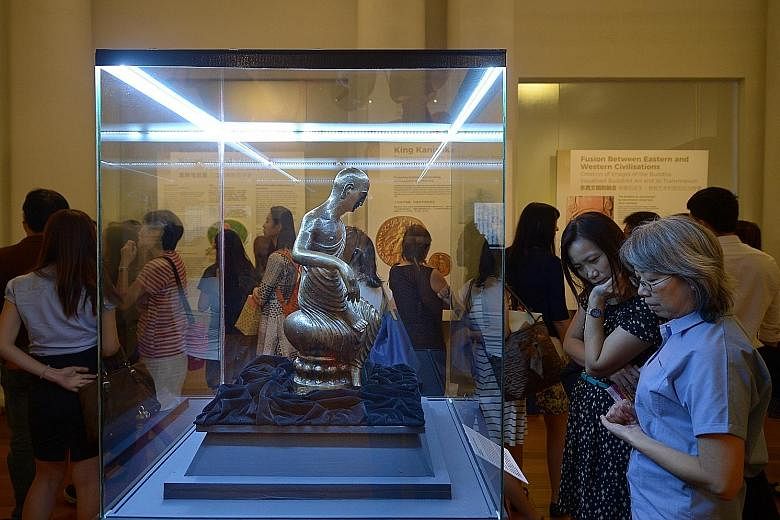Islamic Religious Council of Singapore (Muis) president Mohammad Alami Musa has called for interfaith dialogue to deepen and go beyond sharing of meals, as religious fundamentalism continues to rise elsewhere.
Speaking at an in-house lecture hosted by organisers of a Buddhist exhibition at The Arts House on Sunday, Mr Alami pointed to the challenges posed by extremism occurring both near and far.
He said the worst thing that can happen is when religion becomes politicised and politics, in turn, is theologised. "Everything is about God, and you have to take a certain position as you want to seek the pleasure of God - there is no compromise," he said.
"We know how to detect an extremist or fundamentalist by the way they treat scripture and sacred text and the way they apply it to issues or problems of the day. That is how we can discern extremism. That is why in Islam, we have this thing called the Middle Path."
In his fully attended talk titled One Reality, Many Beliefs, he outlined approaches to attaining peace and harmonious coexistence.
One strategy, he said, is to seek common ground between different faiths, while another is to seek overlapping consensus. That means to identify principles shared by different religions without the need to establish a common basis.
He noted that countries like the United States, Canada and Britain had reached advanced levels of inter-religious dialogue and communication. "At the intellectual level and the depth of discussion, I think we are still far behind and we need to quickly do something about it, because the next 50 years is about knowledge," he said.
-
46,000
Number of visitors, since Oct 1, to the three-week-long exhibition of rare Buddhist artefacts at The Arts House.
"It is not enough to sit around and have a meal - this is called the 'dialogue of diplomacy', where you find religious leaders standing around, and bringing in the newspaper (the press) to take photos of them drinking and eating together. That is good, but we need to go beyond that for the next 50 years."
Citing town planning that designates space for places of worship as an example, Mr Alami said Singapore is a secular state where there is a lot of space for all religions. There are also many religious public holidays. He noted that the Pew Research Centre's study of 230 countries rated Singapore as the most religiously diverse country in the world. "Many people call Singapore an oasis of harmony, an oasis of peace, in an otherwise troubled world," he said.
But moving on, things are going to be very challenging, said Mr Alami, who is also head of studies in the inter-religious relations in plural societies programme at Nanyang Technological University.
His talk was one of a series at the Lotus Sutra Exhibition-A Message of Peace and Harmonious Coexistence, organised by the Singapore Soka Association, China's Dunhuang Research Academy and Japan's Institute of Oriental Philosophy.
On display are rarely seen Buddhist manuscripts, more than 100 pieces of centuries-old precious artefacts and replicas of paintings in the Mogao Caves in Dunhuang.
Singapore is the 16th country to host the international exhibition, ongoing since 2006. More than 46,000 people have attended the event since it started on Oct 1.


